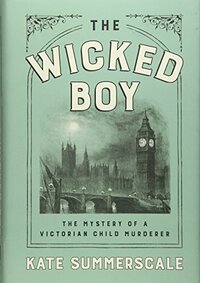Take a photo of a barcode or cover
dark
informative
slow-paced
dark
hopeful
informative
medium-paced
This was a bizarre tale, and an even more bizarre book. It seems well-crafted, in the sense that the author presents all her findings (from what must have been a tortuous and confusing research period) in a very organized and clear way. However, I'm left frustrated by a strange dual-problem: I feel like we don't have enough information to get any real sense of what happened to Robert - the only interview the author has with a direct character witness is hamstrung by the fact that she's not allowed to mention the crime. At the same time, the book feels absolutely stuffed full of all the random newspaper clippings about events happening around the same time. There's no real indication of what characters or news actually had an effect on Robert, just a stream of quotes and cricket games.
dark
informative
slow-paced
dark
emotional
informative
slow-paced
dark
informative
medium-paced
This book was provided to me as an uncorrected digital copy by the publisher, via Edelweiss.
The Wicked Boy is the true story of Robert Coombes, who, in the summer of 1895, at the age of 13, murdered his mother. He then spent the next several days, along with his brother and a family friend, living in the same house where his mother’s body decomposed in an upstairs bedroom. The book tells the account of the murder, trial, and the ensuing years.
(Some spoilers ahead!) I don’t read many non-fiction books, but the premise of The Wicked Boy immediately caught my attention. I was curious to discover what motivates a very young person to kill their own parent, with no apparent intent to truly get away with the crime. The book kept me reading and interested in the case and life of Robert Coombes, but I struggled to be patient with what I see as “filler”. I know historical context is important (especially when the action takes place during a time period outside of most readers’ life spans), but the talk of political matters almost had me giving up on the book when I was less than a quarter of the way in. Maybe I’m just no seeing the big picture here, but I don’t see how the elections taking place at that time had any impact on the crime or the consequences. Additionally, I wish there had been some way to delve into Robert’s thoughts and motivations. My long history of reading mainly fiction has spoiled me to the omniscient point of view, I guess, so I really can’t hold the lack of gripping emotional drama against the book or the author, one works with the materials one has available. My desire for answers as far as Coombes’ motivation goes was thwarted, but the additional material in the epilogue to the book satisfied my need to see the human side of the man. All-in-all, I feel my time reading this book was time well-spent, and has opened my eyes to the pleasures of non-fiction writing.
The Wicked Boy is the true story of Robert Coombes, who, in the summer of 1895, at the age of 13, murdered his mother. He then spent the next several days, along with his brother and a family friend, living in the same house where his mother’s body decomposed in an upstairs bedroom. The book tells the account of the murder, trial, and the ensuing years.
(Some spoilers ahead!) I don’t read many non-fiction books, but the premise of The Wicked Boy immediately caught my attention. I was curious to discover what motivates a very young person to kill their own parent, with no apparent intent to truly get away with the crime. The book kept me reading and interested in the case and life of Robert Coombes, but I struggled to be patient with what I see as “filler”. I know historical context is important (especially when the action takes place during a time period outside of most readers’ life spans), but the talk of political matters almost had me giving up on the book when I was less than a quarter of the way in. Maybe I’m just no seeing the big picture here, but I don’t see how the elections taking place at that time had any impact on the crime or the consequences. Additionally, I wish there had been some way to delve into Robert’s thoughts and motivations. My long history of reading mainly fiction has spoiled me to the omniscient point of view, I guess, so I really can’t hold the lack of gripping emotional drama against the book or the author, one works with the materials one has available. My desire for answers as far as Coombes’ motivation goes was thwarted, but the additional material in the epilogue to the book satisfied my need to see the human side of the man. All-in-all, I feel my time reading this book was time well-spent, and has opened my eyes to the pleasures of non-fiction writing.
Actual Rating: 2 1/2 stars
Fairly interesting, but overall not very impactfull. It feels odd to try and rate/review a true crime book, but the writing admittedly didn't feel very compelling. I found the story of Robert Coombes to be intriguing, but not the writing.
Fairly interesting, but overall not very impactfull. It feels odd to try and rate/review a true crime book, but the writing admittedly didn't feel very compelling. I found the story of Robert Coombes to be intriguing, but not the writing.






